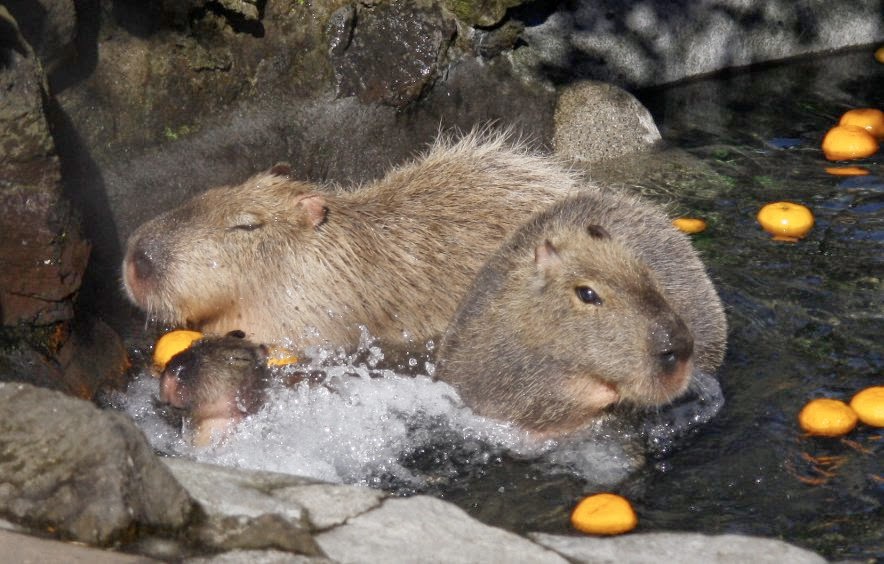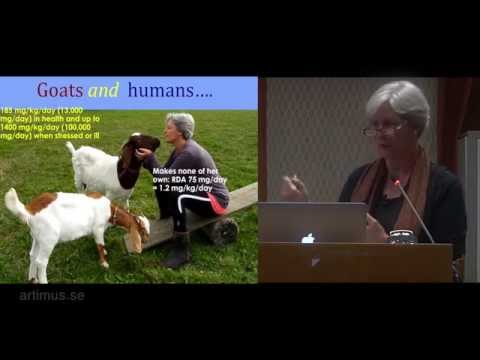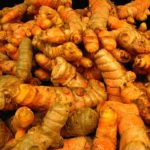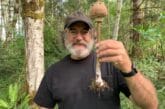Dr. Suzanne Humphries, known for her against the grain research on vaccination safety, lectures on the uses, benefits, and practical aspects of Vitamin C. She advocates it is more than just a vitamin, and can cure and prevent disease.
The Medical Wonder of Vitamin C
Vitamin C, L-ascorbic acid, or simply ascorbate, is one of the safest medical wonders on the planet. The following link will show you Vitamin C’s success as published in medical literature since the 1940s. It has been put down by the FDA and much disbelief exists within the medical community. However, I and many others have enjoyed first-hand the nontoxic benefits of sodium ascorbate. It is important to use high enough doses and the right formulation to achieve best results.
Why is nobody studying Vitamin C in whooping cough? Currently, the conventional approach to whooping cough (pertussis) is to vaccinate infants, and to give older children booster injections. Adults have recently been encouraged to get vaccinated to curb the spread as well. It is my opinion, based on conventional information that this approach is unlikely to make much difference in the presence of pertussis. Because both vaccinated and unvaccinated people get pertussis, we need a safe and effective treatment when the cough occurs. — Dr. Suzanne Humphries
STORY: Turmeric: Sacred Spice, Scientifically-Proven Healer


The reason conventional medical doctors are not taught about the mechanisms of action and benefits of vitamin C in medical school, is that if they knew about it, then not only would a raft of other drugs have been unnecessary, but there would not be serious whooping cough or even deaths. Vitamin A and C would render measles really easy to treat. You’d never see meningococcal complications, because all people suspected of having it, would immediately be put on IV vitamin C and there would be no coagulopathy at all. Vitamin C antidotes Disseminated Intravascular Coagulation (DIC), the coagulopathy. The Center for Disease Control Advisory Committee on Immunization Practices (ACIP) and it’s cronies would not be able to use meningococcal complications and deaths as emotional blackmail to get people to vaccinate, because people would not be scared of infections any more.
Vitamin C is rapidly finding new applications in protecting against endothelial dysfunction, high blood pressure, and the blood vessel changes that precede heart disease. Additional research is discovering that vitamin C can be helpful in preventing asthma, protecting against cancer, and supporting healthy blood sugar levels in diabetics. — Julius Goepp, MD, Life Extension
STORY: Apple Cider Vinegar: Eternal Youth From the Tree of Life
Are you concerned about vitamin C toxicity? You shouldn’t be. History and science has already shown it to be one of the safest interventions. Read about the mythology of vitamin C toxicity, including kidney stones here.
Today, more and more publications in peer-reviewed literature are available. They show the necessity and benefit of ascorbate to the immune cells called macrophages and neutrophils. Without vitamin C, the immune system is paralyzed and unable to regenerate the ability to dissolve disease-causing elements in the body. Vitamin C is also paramount in combating toxin mediated diseases such as whooping cough and tetanus.
Our unvaccinated and under-vaccinated population did not appear to contribute significantly to the increased rate of clinical pertussis. Surprisingly, the highest incidence of disease was among previously vaccinated children in the eight to twelve year age group.” — Dr. Maxwell Witt, Kaiser Permanente
A Preliminary Report on the Use of Cevitamic Acid in the Treatment of Whooping Cough
Dr Suzanne Humphries is a conventionally educated medical doctor from the USA. She is board certified in Nephrology and specializes in adult internal medicine, nephrology, vaccination and vitamin C treatments. Her full CV can be viewed here.
Updated 28 February 2024














Is enough turmeric grown in the U.S. so that it’s available on grocery shelves, and how do I find it? I want to be sure that if I buy turmeric it is tested and passes the no-heavy-metals test.
Turmeric is a tropical plant, so outside of Hawaii, it is not appropriate to grow in the US. That said, it is available in bulk at health and Indian spice stores. At regular grocery, it usually comes in smaller containers. Organic is preferable, and that would be most reliable at health stores. For the best therapeutic results, try a curcumin supplement, the active ingredient, though more expensive.